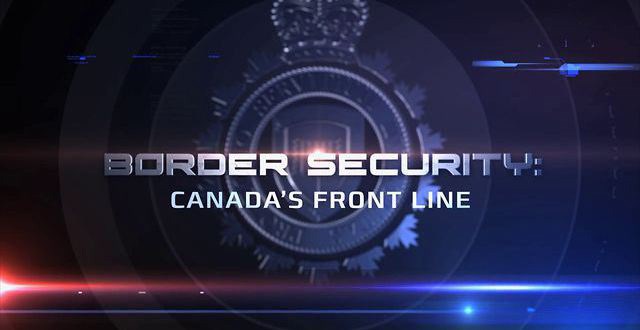A Richmond man is suing the federal government and the producers of a TV show after he was allegedly filmed without his permission at the Vancouver airport while he was being detained, questioned and falsely accused of money-laundering, gang membership and gang affiliations.
Neil Lim, a building manager, says that on March 23, 2013, as he was about to board a plane to Hong Kong for a three-week vacation, officers of the Canada Border Services Agency (CBSA) demanded he produce travel documents and his backpack.
After two inspections were completed without incident, he says, an officer along with two unidentified men carrying video recording equipment from the show Border Security: Canada’s Front Line approached him.
In a writ filed in B.C. Supreme Court, he says officer Danielle Getzie told him that he was being investigated for money-laundering under the Proceeds of Crime Money Laundering Terrorist Financing Act.
Lim says Getzie told him that the employees of the TV show, which has an agreement with CBSA allowing it to film officers during the course of their duties, were documenting the investigation by video and that the filming was compulsory.
Getzie took Lim into an isolated and secure room for further questioning and inspection along with two other officers referred to in the lawsuit only as CBSA officers 1 and 2.
The officers re-inspected his travel documents and backpack and then allegedly “arbitrarily” questioned him about his personal drug use, threatening that if he didn’t answer the questions, they would cause him to miss his flight by compelling a urine test.
“The plaintiff, in fear and under duress, answered the questions on personal drug use in the affirmative,” says Lim’s lawsuit.
CBSA officer 1 then, with “excessive force,” aggressively patted-down or frisk-searched Lim and he was taken into another secure room and strip-searched, it says.
Following the strip search, CBSA officer 2 continued to question Lim, “arbitrarily” accusing him of gang membership and gang affiliations Lim had no knowledge of or association with, says the suit.
After he was released, Lim says employees of Force Four Entertainment Inc., the producers of the TV show, asked him to sign a form but he refused to do so.
“While waiting in the common areas of YVR international departures, CBSA officer 2 continued to harass and question the plaintiff regarding his trip.”
Lim says that on Oct. 22, 2013 he discovered that the TV show had been broadcast on the National Geographic channel, episode 17 of Border Security’s second season.
“Episode 17 transmitted, communicated and/or broadcast publicly on television false, injurious and defamatory statements, accusations and innuendoes about the plaintiff,” says the lawsuit.
Roy Ho, Lim’s lawyer, says that despite the fact that Lim was “blotted out” during the broadcast, his client felt that he was identifiable.
Charges related to the investigation were laid against Lim but were eventually dropped by the Crown, said Ho. He would not say what charges had been laid.
Lim says he has suffered post-traumatic stress disorder, depression, anxiety, mental suffering and loss of wages arising from the alleged negligence of the border officers and the film company, and is seeking court declarations that his Charter rights were violated and the CBSA investigation was unlawful.
He also wants unspecified general, special, aggravated and punitive damages.
No response has yet been filed to the lawsuit, which contains allegations that have not been proven in court. The CBSA and Force Four Entertainment could not be reached for comment.
A short video on the National Geographic website explains that for participants in the filming of Border Security, a release form with 16 languages is used. A CBSA official is quoted as saying that only those who “truly” wish to take part actually participate in filming.
For more stories, go to theprovince.com



